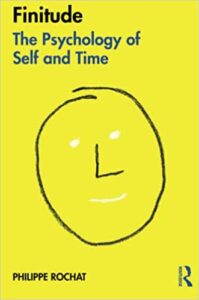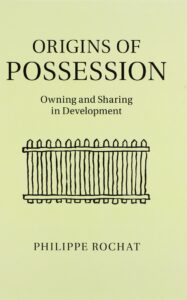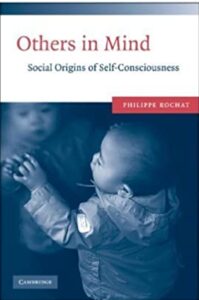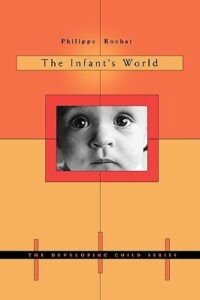Our Published Books

Philippe Rochat’s FINITUDE is a rumination on time and self-consciousness. It is built around the premise that finitude and separation form the human self-conscious reality of time. It argues that we need to reclaim time from current theories in physics that tend to debunk time as an illusion, or state that time simply does not exist. This thought-provoking book considers how, from a human psychological and existential standpoint, time is very real. It examines how we make sense of such reality in human development and in comparison to other living creatures.

Although it is difficult for us to fathom, pure monsters do not exist. Terrorists and other serial killers massacre innocent people, yet are perfectly capable of loving their own parents, neighbors, and children. Hitler, sending millions to their death, was contemptuous of meat eaters and a strong advocate of animal welfare. How do we reconcile such moral ambiguities? Do they capture something deep about how we build values? As a developmental scientist, Philippe Rochat explores this possibility, proposing that as members of a uniquely symbolic and self-conscious species aware of its own mortality, we develop uncanny abilities toward lying and self-deception.

Human possession psychology originates from deeply rooted experiential capacities shared with other animals. However, unlike other animals, we are a uniquely self-conscious species concerned with reputation, and possessions affect our perception of how we exist in the eyes of others. This book discusses the psychology surrounding the ways in which humans experience possession, claim ownership, and share from both a developmental and cross-cultural perspective.

Why are we so prone to guilt and embarrassment? Why do we care so much about how others see us, about our reputation? What are the origins of such afflictions? Philippe Rochat argues that it is because we are members of a species that evolved the unique propensity to reflect upon themselves as an object of thoughts; an object of thoughts that is potentially evaluated by others. But, the argument goes, this propensity comes from a basic fear: the fear of rejection, of being socially “banned” and ostracized. Others in Mind is about self-consciousness, how it originates and how it shapes our lives. Self-consciousness is arguably the most important and revealing of all psychological problems.

What do infants know? What do they feel, and how do they come to understand what’s happening around them? How do they begin to construe others as persons with feelings and intentions? These questions inspire this remarkable new look at the infant’s world. The short answer? Infants are much more sophisticated perceivers, feelers, and thinkers of their world than we may think.
